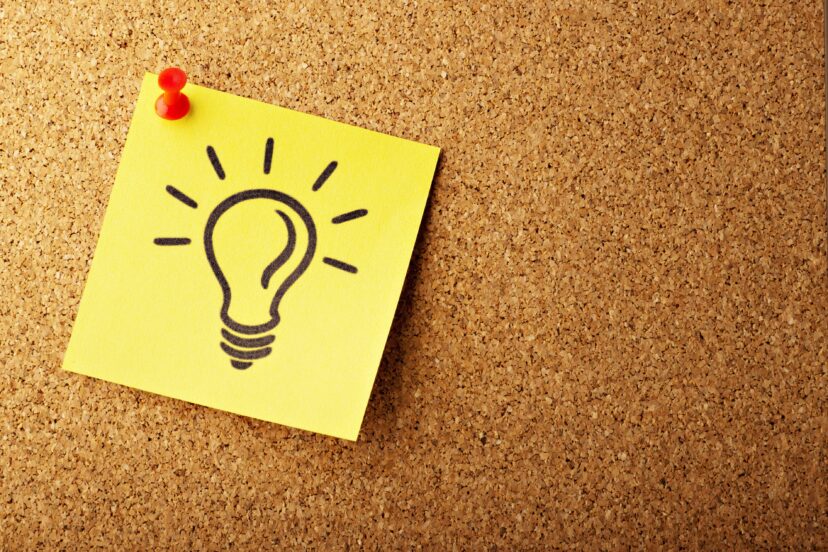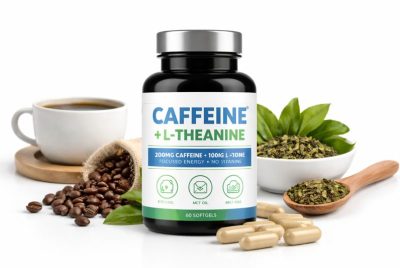Top 10 Cognitive Function Tests You Can Take Online
We may earn a commission for purchases made using our links. Please see our disclosure for more details.
Do you love tracking your mental performance? Well, I do! Whether you’re stacking your nootropic routine or just curious about how sharp your brain really is, cognitive function tests are your secret weapon.
I’ve spent years exploring nootropics, biohacking, and brain optimization. But all the supplements in the world don’t mean much unless you’re measuring the results. That’s where online cognitive tests come in. They’re simple, often free, and give you a real look at how your brain is firing on any given day.
Let’s talk about the top 10 online tests and why you should try them too.
What Exactly Are Cognitive Function Tests?
Think of them like a brain mirror. They show you how well your memory, focus, problem-solving, and reaction time are doing. You don’t need to be a neuroscientist or have memory loss concerns. These tests are great for anyone looking to understand their brain better.
Why I Take These Tests (And Why You Should Too)
For me, it’s about feedback. When I start a new nootropic stack, I take a baseline test. Then I test again after a few weeks. It helps me track improvements and spot what’s working—or not. It’s like A/B testing, but for your brain. Plus, they’re actually pretty fun.
Can You Trust These Online Tests?
To a point, yes. These cognitive function tests are not replacements for clinical assessments, but many are research-based. I like to use them as a rough gauge—especially when used consistently. If you’re taking them seriously, try to test in the same environment each time.

1. Cambridge Brain Sciences
This one is solid. Developed by legit neuroscientists. It breaks things down into memory, reasoning, verbal skills, and focus.
You’ll go through a series of short interactive tests. They’re fun but surprisingly challenging. Perfect if you want something backed by real research. They offer a free trial, which is enough to get started.
2. CogniFit
This platform feels more polished. It tests everything from divided attention to planning and even motor coordination.
I really like their dashboard—it shows strengths and weaknesses clearly. There’s a free version available, but for deeper analysis, you’ll need to pay. I recommend starting free and upgrading if you’re into detailed tracking.
3. MindCrowd
This one’s a quick word-pair memory test. It takes about 10 minutes and contributes to Alzheimer’s research. So, not only do you get a look at your brain health—you also support science.
It’s completely free. Great if you want something fast and meaningful.
4. BrainMetrix
Looks a bit old-school, but don’t let that fool you. The tests are tough. They target logic, memory, focus, and visual skills.
It’s no-frills but surprisingly useful. I revisit this one now and then to check my attention levels. And yes, it’s totally free.
5. Test My Brain
This is one of my favorites. Developed by Harvard collaborators, it covers a lot—reaction time, memory, emotion recognition, and more.
You can take individual cognitive function tests based on what you want to measure. It’s part of ongoing research, and it’s completely free. You’ll want to create a free account to save your scores.

6. MemTrax
This one’s great for tracking changes over time. You’ll see a stream of images and click whenever something repeats.
Simple, fast-paced, and weirdly addictive. I recommend using this one monthly if you’re testing a long-term nootropic stack. You can check your results right away, and it’s free.
7. BrainCheck
Originally built for doctors, BrainCheck now has a more casual version. It tests reaction time, memory, and even coordination.
The layout feels medical, but the experience is smooth. They offer a free trial, and the data feels reliable.
8. BrainHQ by Posit Science
This is more like brain training than just testing. But it gives you feedback after every session, which is gold.
It’s designed by top neuroscientists and used in clinical settings. Some exercises are free, but a subscription unlocks everything. If you’re serious about daily brain work, it’s worth checking out.
9. PsyToolkit Reaction Time
Want to test how fast your brain responds? This one’s for you. It’s basic, but powerful.
Click as soon as you see a visual cue. That’s it. It’s used in academic studies and works well when you want a clean measurement of brain speed. And yes—100% free.
10. Lumosity
Ah, the classic. Lumosity has been around for years and still holds up. Their brain performance test feels like a game but gives decent insight into speed, flexibility, and attention.
It’s flashy, easy to use, and a great place to start if you’re new to cognitive testing. There’s a free tier that works fine for basic use.
What These Tests Measure
Each one focuses on different areas of your brain:
- Memory—how much you remember and how fast.
- Attention—can you stay focused or multitask?
- Logic and reasoning—how well do you solve problems?
- Reaction speed—how fast can you respond to stimuli?
- Language skills—word recall, verbal fluency, comprehension.
None of these scores define you. But they do help you track trends and see if those lion’s mane capsules are actually doing their job.
Tips for Better Results
If you’re testing after a new nootropic, wait until it kicks in. For example, I test 45 minutes after taking alpha-GPC or Rhodiola.
- Use a desktop, not your phone. You want accuracy.
- Test in the morning if possible—before caffeine for baseline, after for comparison.
- Stay consistent. Same time of day, same lighting, same mood (well, try).
- Save your scores or take screenshots. This is data you’ll want to come back to.

Top Nootropic Supplements to Pair with Cognitive Function Tests
If you’re taking cognitive tests to track your brain performance, it makes sense to stack them with supplements that actually support brain health. Here are my go-to nootropics that have shown noticeable effects before or after testing:
1. Alpha-GPC
Boosts acetylcholine levels, which is essential for learning and memory. Great for short-term focus and long-term brain support.
2. L-Theanine + Caffeine
This combo gives you calm, focused energy. Take it before a test to stay alert without the crash or jitters.
3. Bacopa Monnieri
A classic in the nootropic world. It supports memory formation and recall, especially over consistent use.
4. Lion’s Mane Mushroom
Promotes neurogenesis and mental clarity. Great for daily use if you’re aiming for long-term cognitive health.
5. Rhodiola Rosea
A powerful adaptogen that helps reduce mental fatigue and improves your stress response under test conditions.
Start small, stay consistent, and always track your results. Pairing the right supplements with regular testing is how you truly dial in your cognitive performance.
Science-Backed Supplements for Focus and Memory
If you’re looking to enhance memory and mental clarity, Alpha-GPC is a solid option. A randomized controlled trial found that Alpha-GPC significantly improved cognitive performance in healthy young males, especially in tasks measuring attention and executive function. For a more immediate boost in focus and alertness, the combination of L-theanine and caffeine has been shown to work synergistically. According to a systematic review, this duo enhances attention and cognitive performance without the jittery side effects of caffeine alone.
Is a Low Score Bad News?
Not necessarily. We all have off days. Maybe you didn’t sleep well. Maybe you’re dehydrated or multitasking. I’ve seen my scores dip after long flights or poor diet weeks. Track the trend, not the blip.
If your scores consistently drop or you notice serious changes in memory or focus, talk to a professional. These tests are great tools—but they’re not a diagnosis.
What If You Score High?
Awesome. But don’t stop there. Keep testing. Keep challenging yourself. And keep exploring new ways to boost performance—nutritionally, physically, and mentally.
How Often Should You Test?
When I’m experimenting with a new supplement or routine, I test weekly. Otherwise, once a month is enough. It keeps me honest. If my scores improve, I know my stack is working. If they dip, it’s time to reassess.
Final Thoughts
Cognitive tests are the underrated tool in every brain hacker’s kit. They help us track progress, optimize performance, and get curious about how our minds really work. They’re simple, often free, and surprisingly insightful. So grab a cup of your favorite adaptogen tea, block out 15 minutes, and take one. Your future self will thank you. For tips on creating your own custom brain-boosting routine, check out this nootropic stack guide.
FAQs
1. Can I trust these online tests?
Mostly, yes. They’re not diagnostic tools, but they offer reliable insights—especially if you use them consistently.
2. Do nootropics really affect test scores?
Absolutely. I’ve personally seen improvements after introducing citicoline, L-theanine, and bacopa monnieri. Just remember—results can vary.
3. Are these tests safe for daily use?
Yes, but they’re more valuable when spaced out. You want to measure change, not memorize answers.
4. Is there a “best” test on the list?
It depends on what you’re testing. For memory, try MemTrax. For overall function, start with Cambridge or Cognifit.
5. Can kids or teens use these?
Some, like Lumosity and BrainMetrix, have options that are kid-friendly. But always check the site’s age guidelines first.




